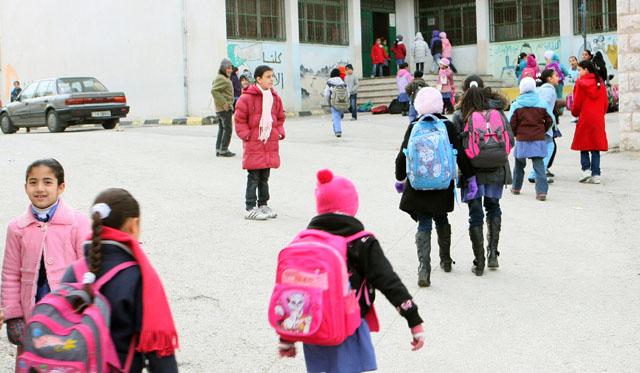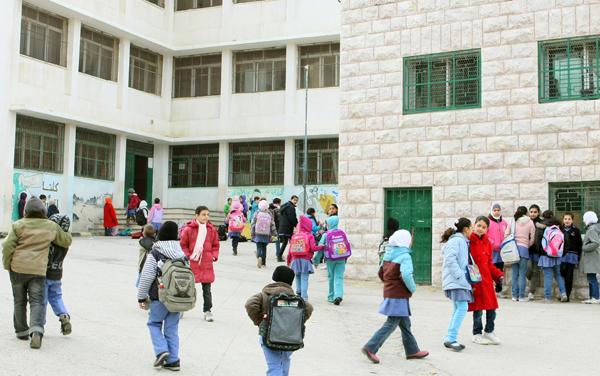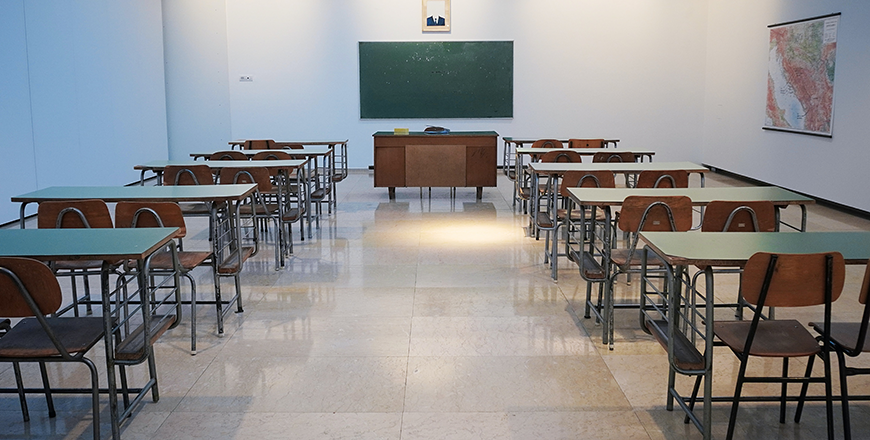You are here
Warmer classrooms offer better learning environment — educators
By Muath Freij - Feb 22,2015 - Last updated at Feb 22,2015

AMMAN — Raed Sheyyab, who lives in the northern city of Irbid, usually does not send his children to school on cold winter days due to the absence of heating in their classrooms.
Sheyyab said his children end up missing many classes in winter.
“Many of my children’s classmates do the same because their parents worry about them,” he told The Jordan Times.
This “nightmare”, however, will come to an end thanks to His Majesty King Abdullah’s directives to install central heating in public schools across the Kingdom in a several-phase project.
Commending the King’s directives, Jordan Teachers Association Spokesperson Ayman Okour said the project will have a positive impact on the education process at public schools as it will provide a safe environment for both teachers and students.
“It will positively reflect on the quality of education and the health of both teachers and students,” Okour told The Jordan Times in a phone interview.
He noted that the kerosene heaters schools provide in classrooms are not “effective enough”.
“It costs a lot to fix them and they do not offer a high-quality solution to be honest.”
Okour called on the government to implement the King’s directives without delay so that all schools benefit.
In the first phase of the project, funded by His Majesty, central heating will be installed this year in 50 schools located in “extremely cold areas” based on priority, while the government will undertake the implementation of the following phases to cover all public schools, according to a Royal Court statement.
There are 3,760 public schools in Jordan, where 1.287 million students are enrolled and around 80,000 teachers and 10,000 principals work, according to official figures.
Abdullah Shatnawi, a teacher at a public school in Irbid, 80km north of Amman, said most educators have to deal with poor class attendance levels during winter.
“Also kerosene heaters, with their strong odour, are not healthy at all. I don’t even dare get too close to these heaters,” he added.
Shatnawi noted that both students and teachers will benefit from the project.
“Teachers will be able to work even harder if they are warm enough. Sometimes I cannot wait for the end of class so that I can go to another, warmer room,” he added.
The Royal initiative is “more than excellent” for Ahmad Abu Rakhiyeh, a resident of the southern city of Maan.
“My son could not even bear to sit at his desk because of the cold. Some schools were built a long time ago and are not well equipped to preserve warm room temperatures,” Abu Rakhiyeh added.
Even if each school is provided with heaters, they are not enough to make children feel warm, he said.
“This [installing central heating] is the only solution. I also believe that schools in colder areas should be given priority in this project,” he added.
Kholoud Rawashdah, a resident of Karak, 140km south of Amman, said properly heated classrooms will motivate children to attend class.
“Many of my daughters’ friends always complain about this issue. Having warm classrooms will make students more focused,” added Rawashdah, who has two daughters studying at public schools.
Related Articles
AMMAN — Although warmer public schools are the aim of all stakeholders, the heating mechanism remains a challenge that is hindering efforts
AMMAN — Public schools will have warm classrooms this winter, with measures under way to install central heating, an official source said We
AMMAN — A public school in Amman is grappling with heating shortages, broken windows, unsanitary facilities and a lack of basic amenities.&n














